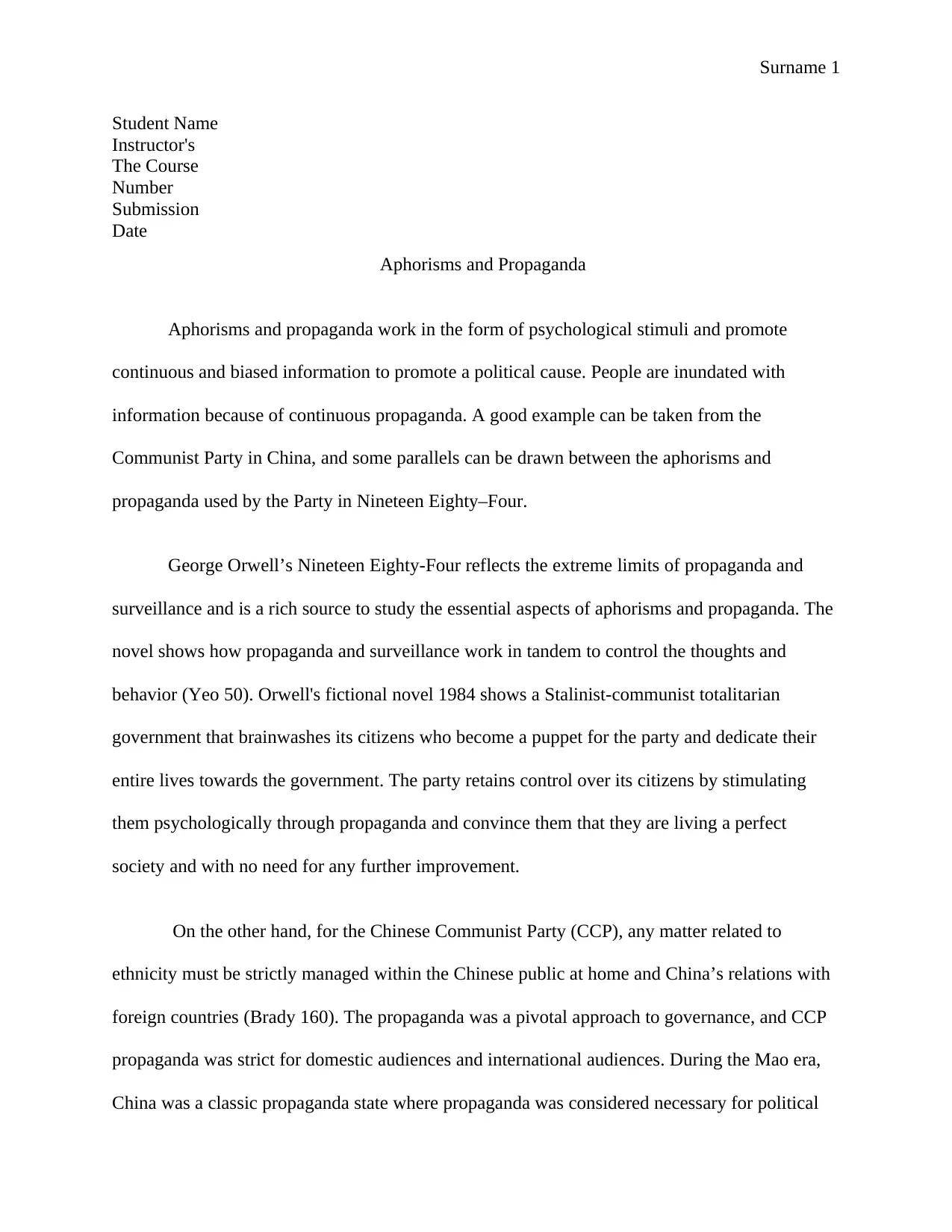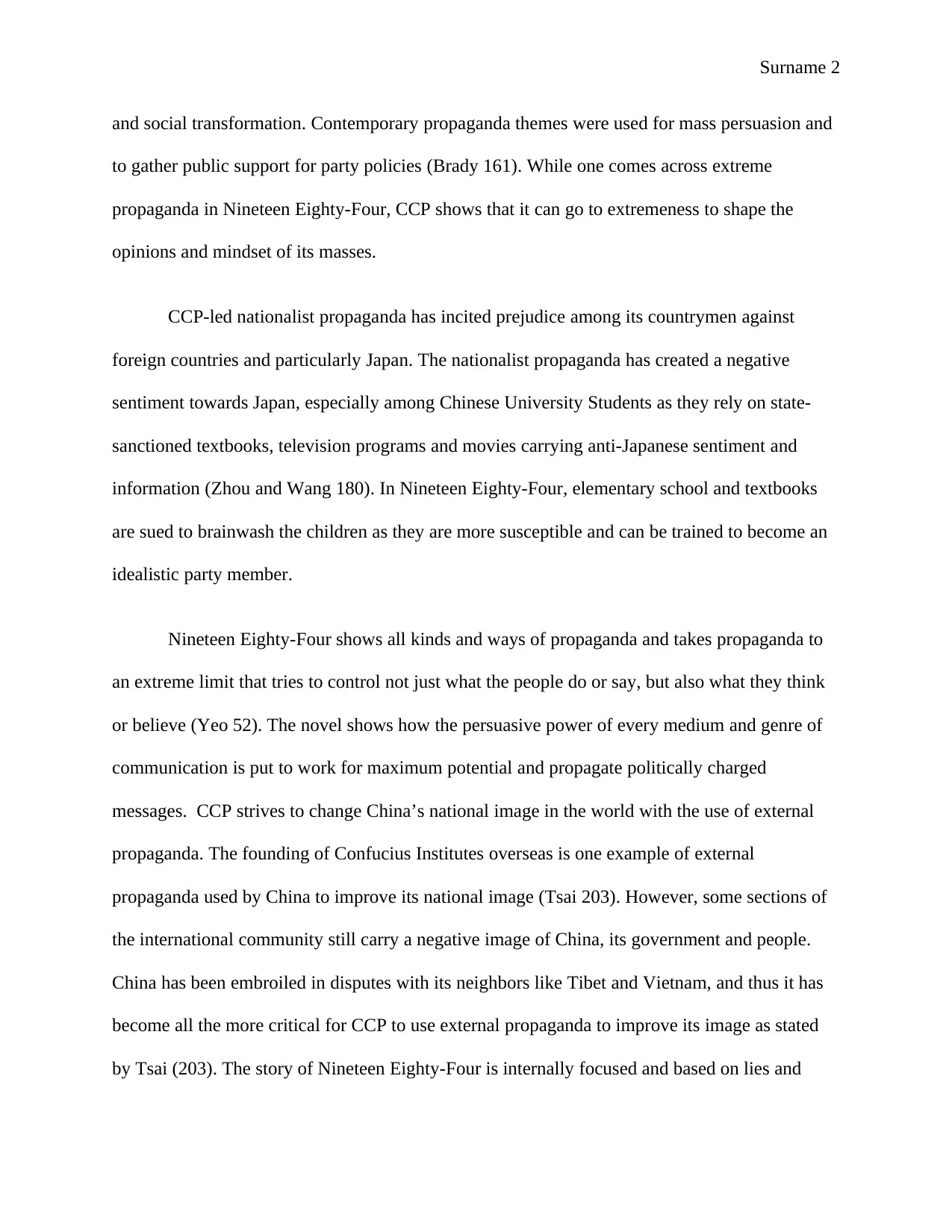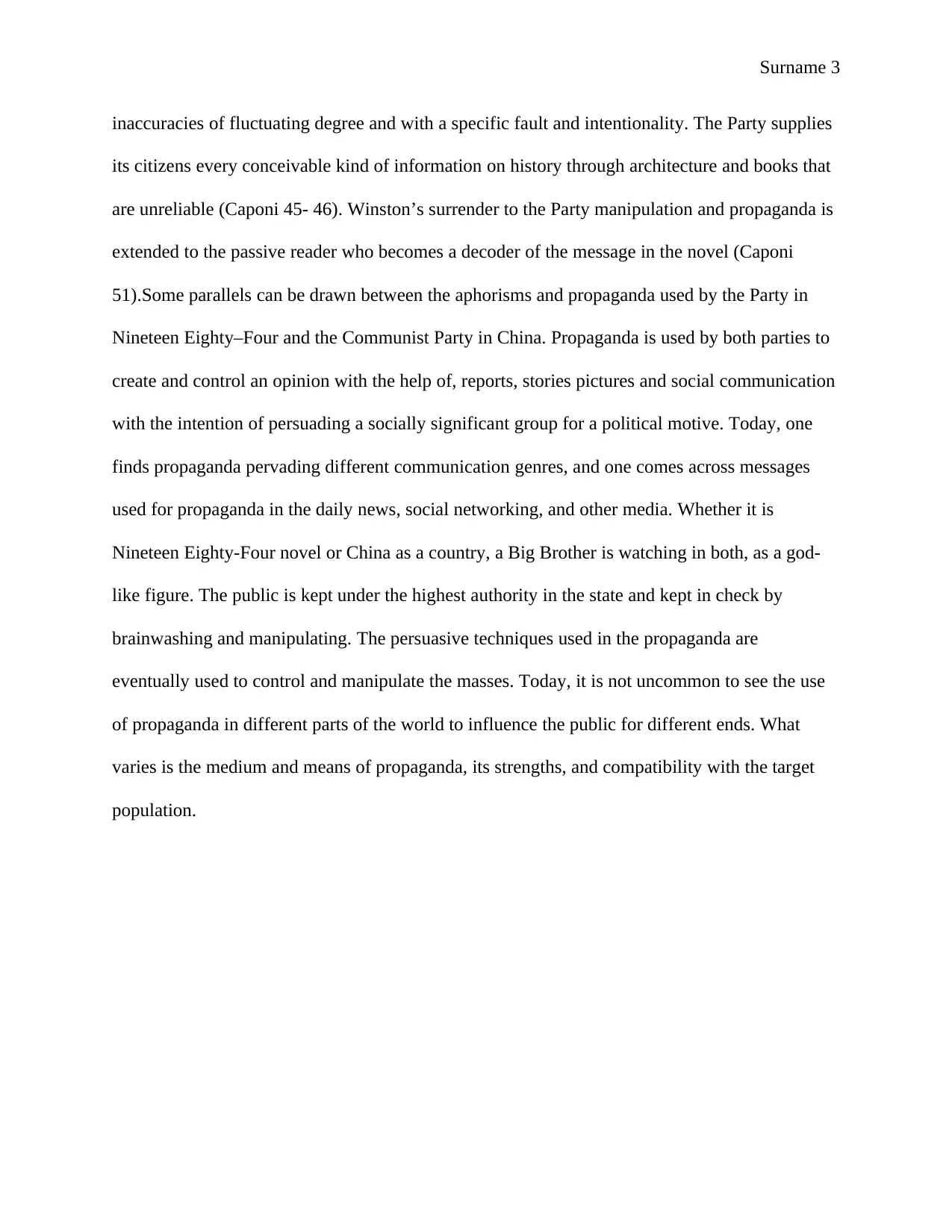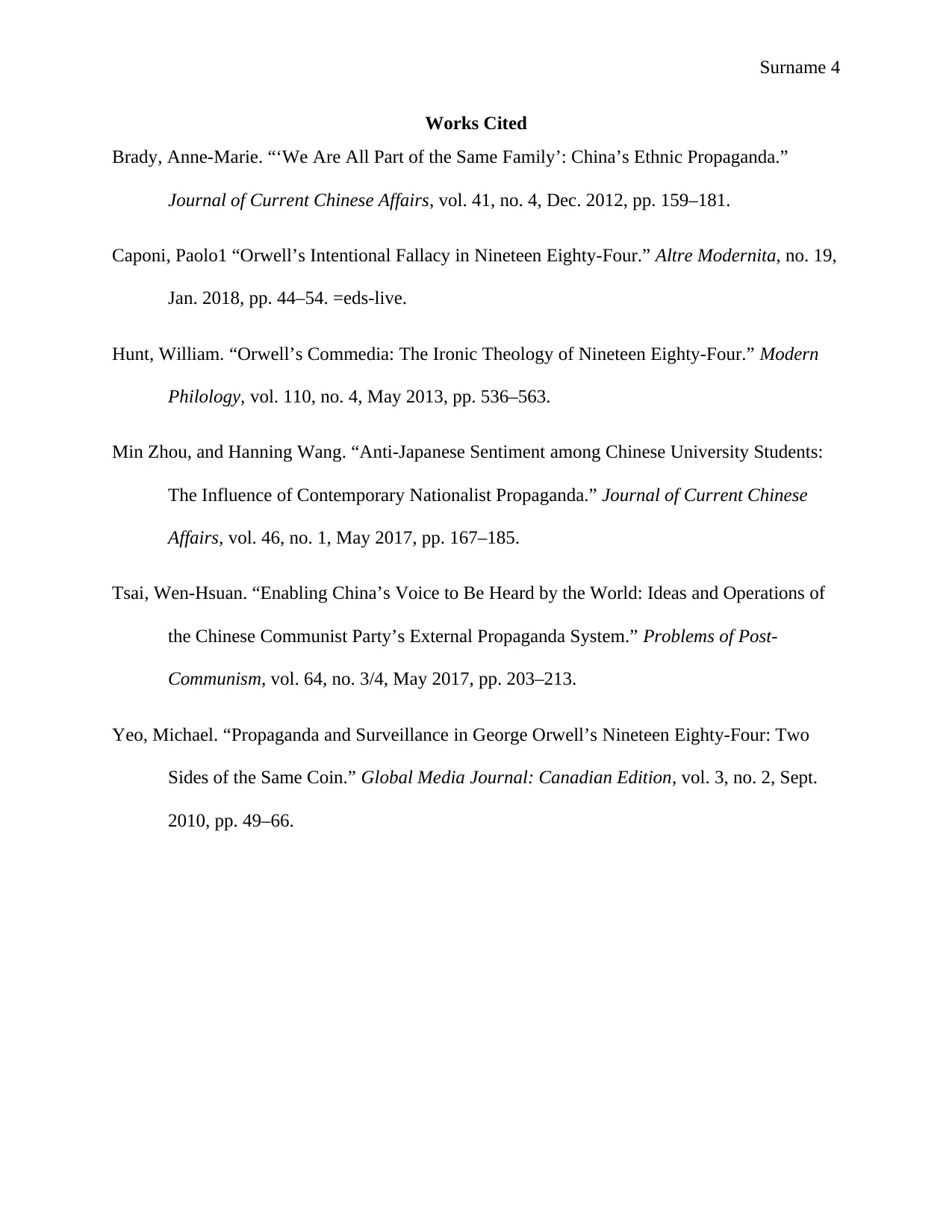Propaganda and its Impact: 1984, China, and Psychological Stimuli
VerifiedAdded on 2023/03/20
|4
|1115
|71
Essay
AI Summary
This essay provides a comparative analysis of propaganda techniques employed in George Orwell's 'Nineteen Eighty-Four' and contemporary China. It examines how both the Party in '1984' and the Chinese Communist Party (CCP) utilize propaganda and aphorisms as psychological stimuli to control information, manipulate public opinion, and maintain political power. The essay explores the parallels between the extreme propaganda methods depicted in Orwell's novel and the CCP's strategies, including nationalist propaganda and the use of state-sanctioned media to shape public sentiment. It also discusses the role of external propaganda in improving China's international image, as well as the impact of propaganda on influencing thoughts and behaviors. The essay draws on various scholarly sources to illustrate the pervasive nature of propaganda in different communication genres and its effectiveness in controlling and manipulating masses. The essay underscores the significance of understanding propaganda and its implications in both historical and contemporary contexts.
1 out of 4






![[object Object]](/_next/static/media/star-bottom.7253800d.svg)